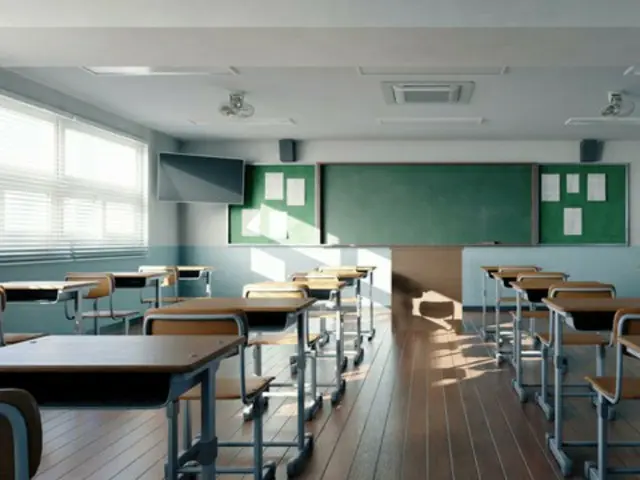This is because it will be difficult to develop talent that can handle AI unless schools that do not ask questions change their curriculum.
On the 8th, Professor Yutaka Ikeda, head of the Korean Language and Literature Department, said, "AI is a kind of knowledge repository, and the way to derive necessary knowledge is through questions. If you don't have the ability to ask questions, no matter how much knowledge you have in the repository,
Professor Bae Sang-hoon of Sungkyunkwan University's Department of Education also said, "The ability to find out what the problem is is more important than solving the problem.
"We are now in an age where if we present a problem, artificial intelligence can solve it," he said, pointing out that "in order to ask good questions, we need to foster students' curiosity and self-initiative through school education."
Kim Do Yeong, president of Ulsan Polytechnic University (former Minister of Education, Science and Technology), said, "The ability to ask questions has become even more important in the age of artificial intelligence.
"Because students need the ability to ask questions," he emphasized. For students in education, "questions" allow them to accumulate background knowledge, while at the same time nurturing their intellectual curiosity, thinking ability, and creativity.
To ask a question, you need basic and background knowledge, as well as intellectual curiosity. The process of arriving at an answer through a question develops thinking and creativity.
"When using AI, I explain to students that the question is the 'key,' because if you make a key, you get a general answer, but if you make a good key, you get a precise answer," he said. "However,
"You can only ask good questions if you have a certain level of knowledge," said Kim Seong-cheon, a professor at the Graduate School of Educational Policy at Korea National University of Education.
The problem is that the current elementary, middle, and high school education system does not fully equip students with the ability to ask questions.
According to the "Survey on Student Participation by Type of High School Class" reported by the Ministry of Education, a survey of 1,211 high school teachers nationwide conducted from June 28 to July 14, 2023 revealed that 5
8.6% of teachers answered that "A large part of the classes are conducted in a lecture format." 73.3% of teachers answered that "Class methods should be innovated to allow for more student participation in classes." Teachers also asked questions
Although they believe that a more involved teaching method would be better, they are unable to innovate because they are preparing for entrance exams. Educational experts are working to develop students' "ability to ask questions" at elementary school.
They all agreed that middle and high school classes need to be drastically improved. Professor Park Nam-ki of the Department of Education at Gwangju National University of Education said, "Learning happens when intellectual curiosity is aroused, but changing the teaching method is not enough."
"It's also a good idea to have students come to class prepared with questions," he advises. This is a form of so-called "flipped learning" that is used in universities and other places.
The proposal is to widely introduce "learning" to elementary, junior high and high schools. Students will study study materials before class, and then ask questions to teachers during class or hold discussions on specific issues.
Professor Na Seung-il of the Department of Industrial Human Resource Development at Seoul National University (former Vice Minister of Education) said, "Even students who were not good at asking questions before entering university are able to do so by the time they enter university.
"When students start using reverse learning in class, the quality of their questions gradually improves," said Professor Kim Seong-cheon.
The Ministry of Education also recognizes the importance of "questioning" in school education. In the "Measures to Improve the Competitiveness of Public Education" announced in June last year, the Ministry of Education said,
The ministry said it will select 120 schools as model schools and provide support to them.
"I want to spread the question-centered teaching model to the field of education," he said. Some have also said that in order to bring about fundamental changes in school teaching, university entrance exams need to be restructured.
The professor said, "Rather than evaluating students with objective questions, we need to use essay and narrative evaluations that allow them to express their thoughts in order to develop their thinking skills."
The Ministry of Education's proposed college entrance exam reform plan, which will take effect in 2028, included a number of changes, including a change to essay and narrative-based assessments.
The idea was considered, but was shelved as a mid- to long-term issue due to concerns about fairness and the difficulty of marking exam papers. Former Minister of Education, Science and Technology Kim Do Yeong said, "The current university entrance exam system is
"It would be good to maintain the exam system and increase the number of essay and narrative questions by 5 to 10 percent per year," said Lee Chang-gyu, head of the group. "Even if it's not a university entrance exam, questions and problem-raising questions in middle and high schools are also important."
It would also be desirable to give marks to students who excel at writing."
2024/08/09 07:03 KST
Copyrights(C) Edaily wowkorea.jp 107

